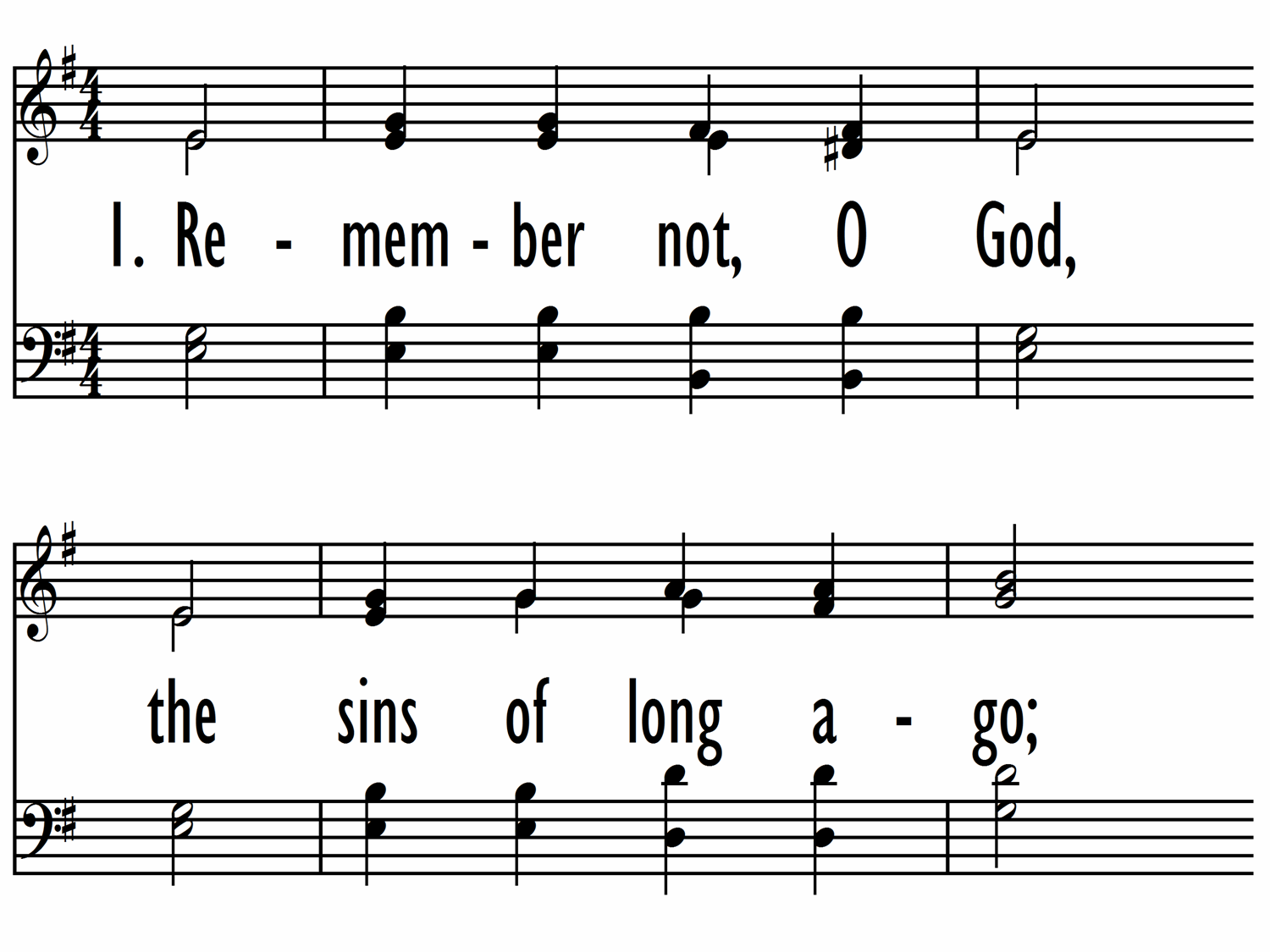- |
User Links
Remember Not, O God
Hymn Information
- First Line
- Remember not, O God
- Text Source
- <cite>Psalter,</cite>, 1912
- Tune Name
- GORTON
- Composer
- Ludwig van Beethoven (1807, adapt.)
- Topic
- Jesus Christ: Shepherd/Good Shepherd · Elements of Worship: Confession
Copyright Information
- Text Copyright
- Public Domain
- Tune Copyright
- Public Domain
- Reprint/Projection Information
- Words and Music: The Words and Music are in the Public Domain; you do not need permission to project or reprint the Words and Music.
Full Text
Scripture References
Further Reflections on Scripture References
A versification of part of Psalm 79, "Remember Not, O God" comes from the 1912 Psalter with minor alterations. In lament style, this prayer asks for deliverance from sin and then vows to praise God forever.
Bert Polman, Psalter Hymnal Handbook
Confessions and Statements of Faith References
Further Reflections on Confessions and Statements of Faith References
God’s children are not called to come before God’s throne with a list of accomplishments, or merits or goodness; they are called, says Our World Belongs to God, paragraph 26, to come with the humility that “…offers nothing but our need for mercy.” Such a cry for mercy comes from our “dying-away of the old self” (Heidelberg Catechism, Lord’s Day 33, Question and Answer 88) which expresses that we are “genuinely sorry for our sin and more and more…hate and run away from it” (Heidelberg Catechism, Lord’s Day 33, Question and Answer 89).
The gifts of renewal and pardon come only “through true faith” (Heidelberg Catechism, Lord’s Day 7, Question and Answer 20) and are “gifts of sheer grace, granted solely by Christ’s merits” (Heidelberg Catechism, Lord’s Day 7, Question and Answer 21). The very act of faith is to plead for his mercy.
Remember Not, O God
Additional Prayers
Remember Not, O God
Tune Information
- Name
- GORTON
- Key
- A♭ Major
- Meter
- 6.6.8.6


 My Starred Hymns
My Starred Hymns



